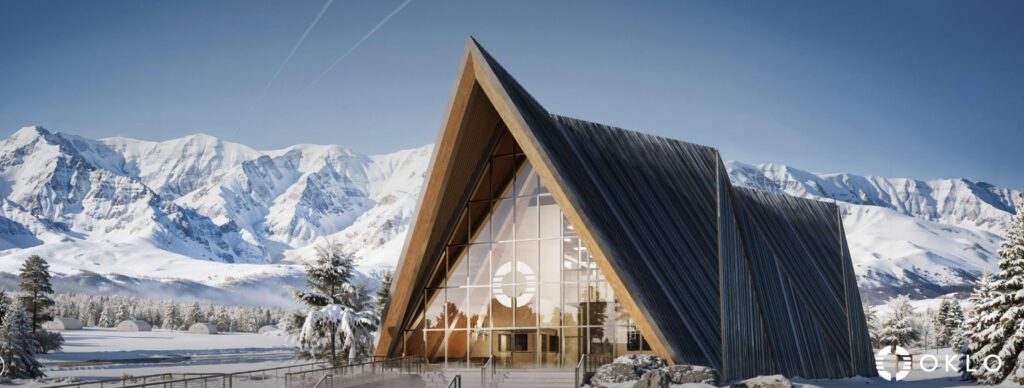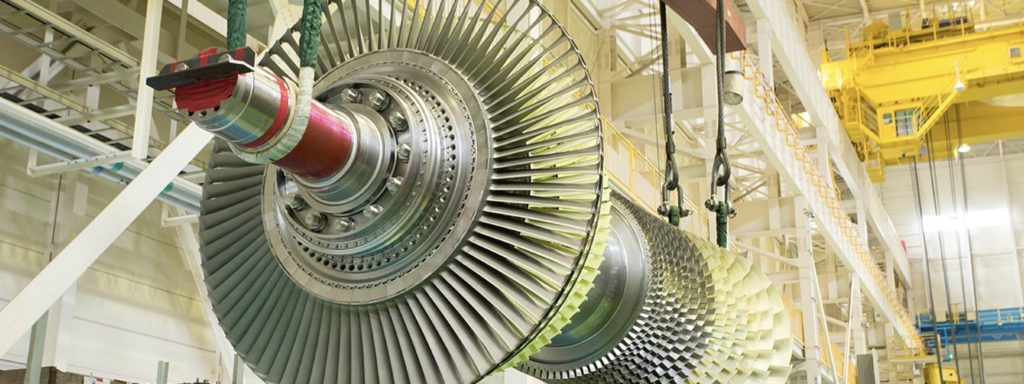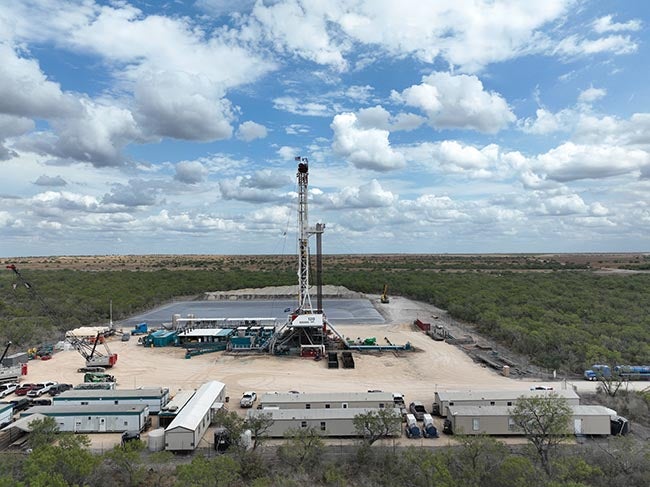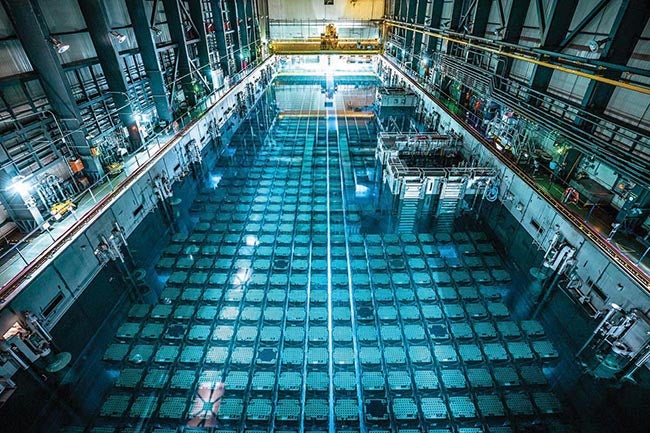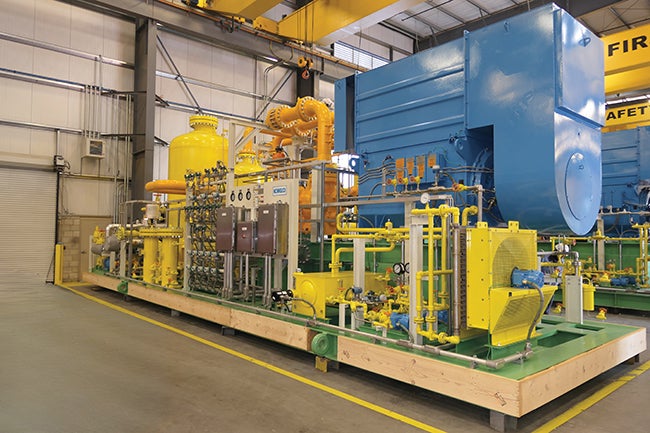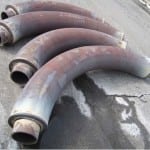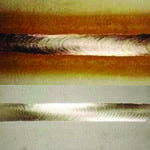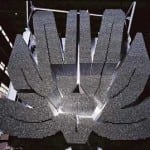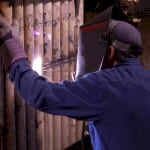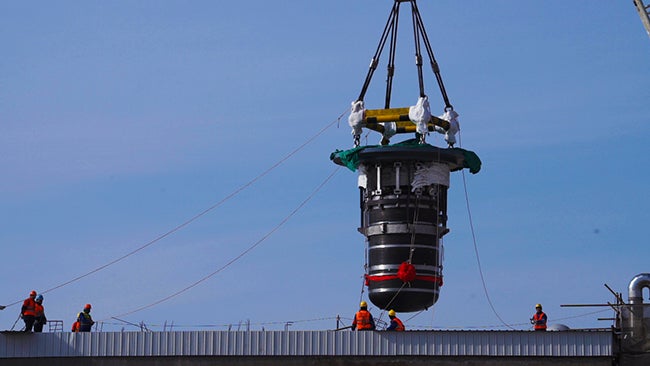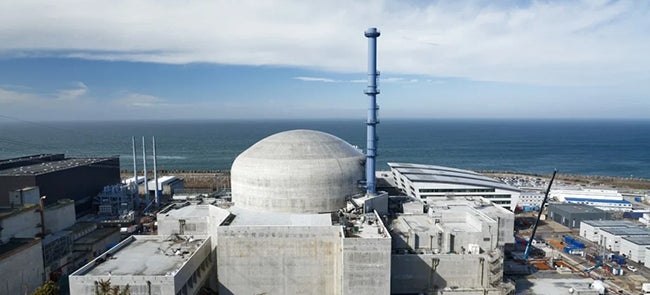Steel piping systems are widely used at coal-fired power plants for a variety of purposes, including the conveying of coal ash slurry to nearby settling ponds, the transfer of limestone slurry to absorber spray towers for removal of SO2 and dilute hydrochloric acid from flue gases, and for transporting away the calcium sulfate by-product of the flue gas desulfurization process.
Millions of tons of coal ash produced each year by coal-fired plants are transported in liquid form to large surface impoundments or in solid form to landfills near those facilities through steel piping ranging from several thousand feet to miles in length. There are almost 900 such landfills and surface impoundments in the U.S. today.
Limestone slurry, used in flue gas desulfurization (FGD) systems, reacts with the flue gas, removing the SO2. In the process, limestone in the slurry is converted into calcium sulfate. The process waste products are then pumped from the bottom of the FGD spray towers through steel pipe for further treatment or are recycled into commercial products such as gypsum board and cement.
However, when these abrasive materials are transported through steel pipe, their effect on the inner surface can be devastating. Abrasive wear within these transportation systems is produced when hard particles are forced against or slide along the wall of the pipe. A loss of material is the result of the hard, sharp, angular edges producing a cutting or shearing action on the pipe wall. In more extreme cases, these effects can result in pipe leaks or failure, or significant maintenance costs and downtime for pipe replacement. Mild steel pipe is simply not tough enough to stand up to the abuse for more than a year or two.
Most abrasion-resistant pipe options operate on the premise that when two objects meet, the harder object wins. To deal with this phenomenon, products are available in a variety of hardnesses, measured on the Brinell Scale, from A-R steel (200 BHN) through iron cast pipe (up to 800 BHN).
Unfortunately, any product that is very hard throughout the wall thickness is also extremely brittle. Excessive brittleness is unacceptable, as piping systems are constantly flexing and moving as a result of pressure surges and spikes and due to mechanical and physical contact at a plant.
However, one type of pipe promises to deliver the best of both worlds: an induction-hardened pipe with an abrasion-resistant inner surface that tapers to a strong, yet ductile outer surface. Ultra 600, manufactured by Port Washington, Wisc.–based Ultra Tech begins with a steel pipe manufactured to a proprietary chemistry, followed by induction heating and water-quenching of the inner surface to create a single-wall pipe (Figure 3).
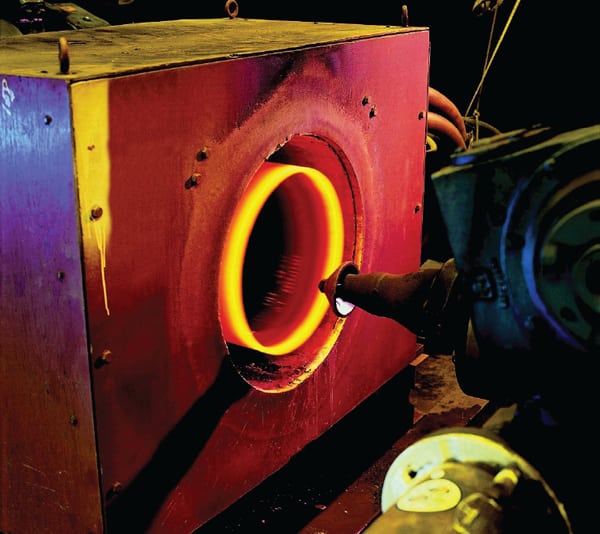 |
| 3. Best of both worlds. Ultra Tech begins the manufacturing process with a steel pipe manufactured to a proprietary chemistry. Next is induction heating (as shown in the photo), which is followed by water-quenching the inner surface to create a single-wall pipe. At 600 BHN, the inner surface of this induction-hardened pipe can withstand most common abrasives. A 250 BHN outer surface is ductile enough to endure normal handling during shipment, installation, and maintenance. Courtesy: Ultra Tech |
At 600 BHN, the inner surface of this induction-hardened pipe can withstand most common abrasives. The pipe tapers to a 250 BHN outer surface that is ductile enough to endure normal handling during shipment, installation, and maintenance. With this proprietary process, pipe can be manufactured in various diameters up to 40 inches and in varying lengths and wall thicknesses. The pipe can be cut and welded like mild steel and accepts standard end options of flanges, weld rings, and couplings (Figure 4).
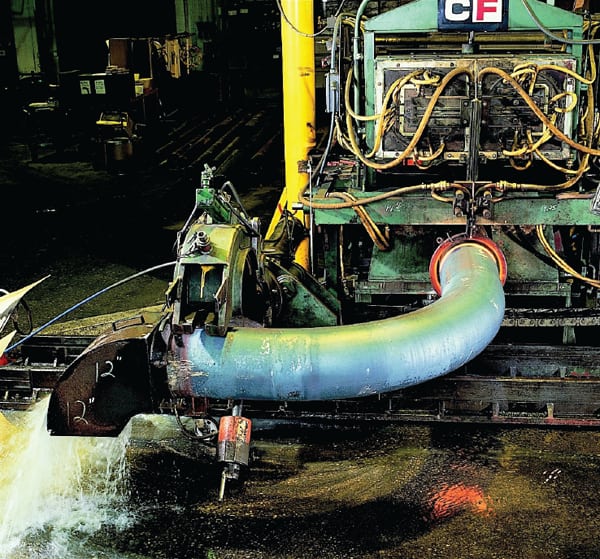 |
| 4. Uses standard welding tools. Because the outer surface behaves like mild steel, Ultra 600 can be cut and welded using standard procedures in the field and can accept the standard end options of flanges, weld rings, and couplings. Courtesy: Ultra Tech |
The company can also produce the Ultra 600 pipe in long radius bends to further reduce wear and eliminate the frequent replacement, repair, and associated expense accepted as the norm at bends and elbows in high-wear applications. Ultra Tech estimates that Ultra 600 pipe will last two to four times as long as mild steel in high-wear applications.
—Contributed by Ultra Tech Pipe.



